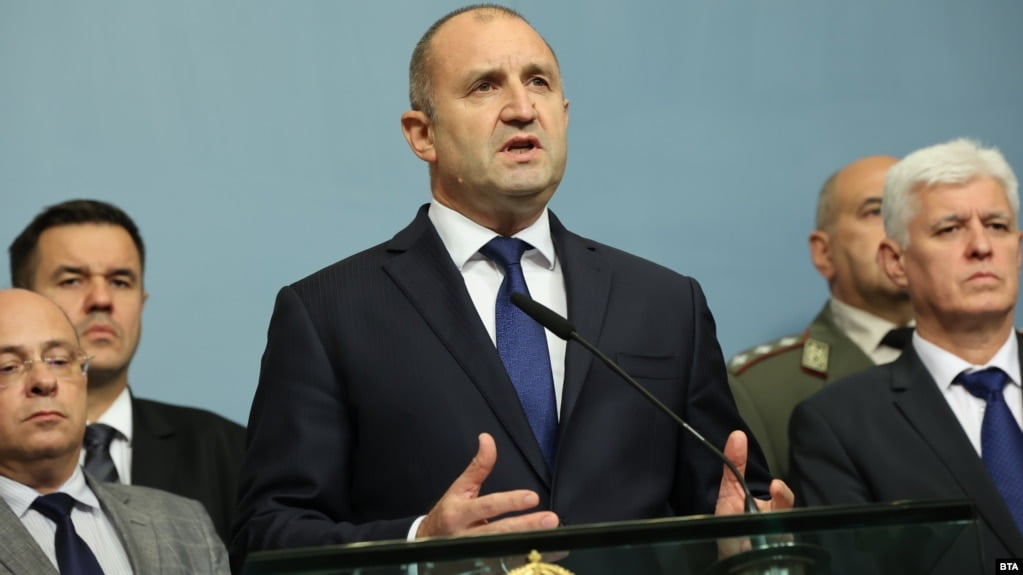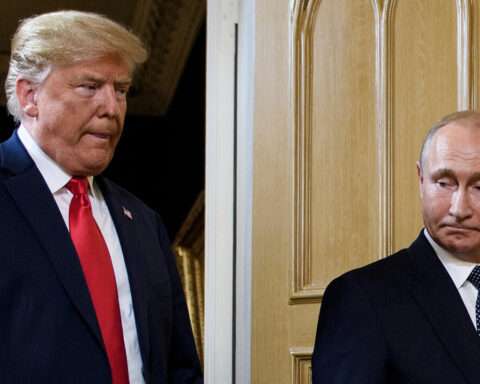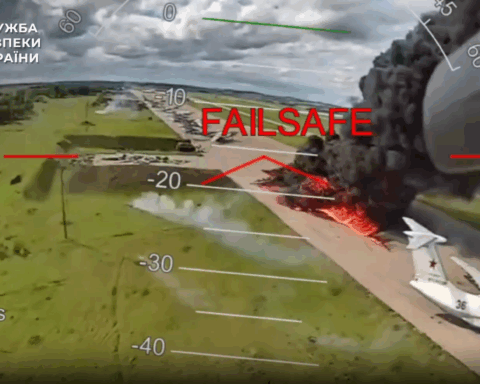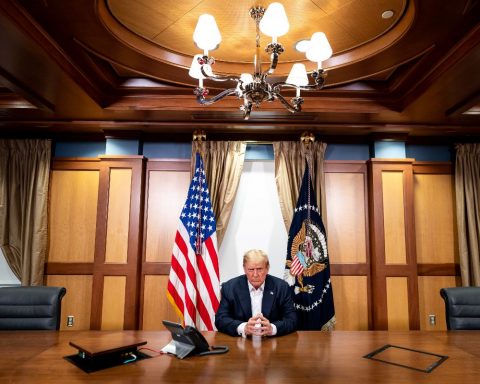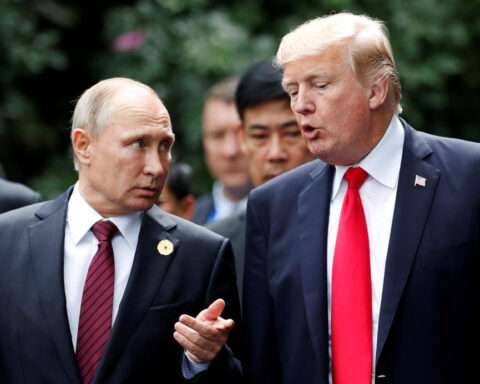Bulgarian President Rumen Radev said on October 3 that he did not join other leaders of Central and Eastern European countries in signing a declaration in support of Ukraine because he did not agree with the full text of the declaration.
Radev’s office issued the response on October 3 after inquiries from journalists about why his name was not among nine heads of state who issued the declaration on October 2 supporting Ukraine.
Radev “does not agree with the full text of the declaration adopted by some countries in Eastern Europe regarding Ukraine’s membership in NATO,” a statement from his office said.
A decision on Ukraine joining NATO should be made “only after the development of clear parameters for the peaceful settlement of the conflict,” it said.

But the statement said Radev supports other positions in the document signed by the leaders of the Czech Republic, Estonia, Latvia, Lithuania, North Macedonia, Montenegro, Poland, Romania, and Slovakia.
It came after Ukrainian President Volodymyr Zelenskiy announced on September 30 that Ukraine had submitted an application for accession to NATO under an accelerated procedure after Russian President Vladimir Putin claimed Moscow had annexed four Ukrainian regions that are partially occupied by Russian forces.
The nine Central and Eastern European leaders reiterated their support for “the sovereignty and territorial integrity of Ukraine” and said they “do not recognize and will never recognize Russian attempts to annex any Ukrainian territory.”
Their declaration also said that the leaders “firmly stood behind the 2008 Bucharest NATO Summit decision concerning Ukraine’s future membership.”
At the 2008 summit, NATO members welcomed Ukraine and Georgia’s aspirations to join but declined to provide a clear timeline for their possible ascension. Putin has cited the possibility of Ukraine joining NATO as justification for launching the ongoing full-scale invasion in February.
The statement from Radev’s office on October 3 says that Bulgaria is part of the declaration from the 2008 NATO summit supporting the future accession of Ukraine, but notes that this declaration was adopted in a completely different security environment.
“Military actions on the territory of Ukraine today require that its membership in the Alliance be discussed within the full composition of [NATO] and not lead to a risk of the direct involvement of NATO countries in the war,” the statement added.


